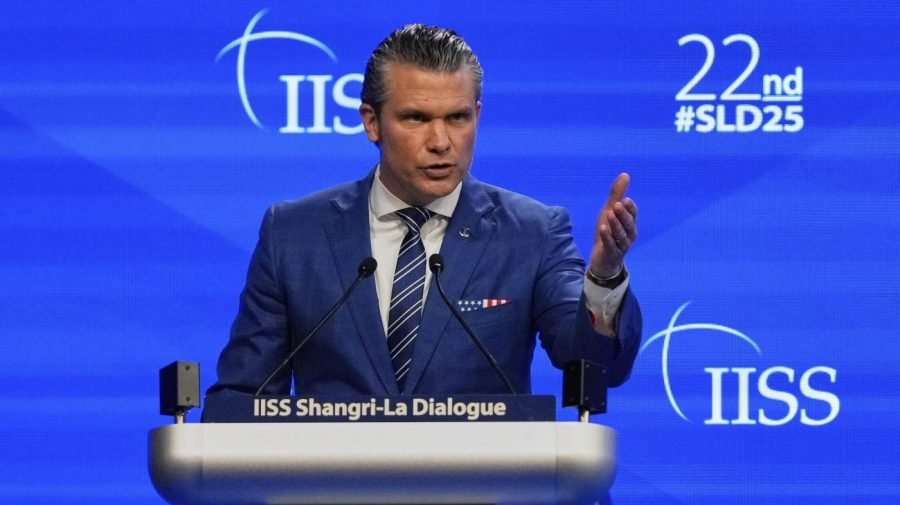
Defense Secretary Pete Hegseth on Friday urged U.S. allies in the Indo-Pacific to increase their defense spending and cooperation with Washington, warning that China poses a “real” and “imminent” threat to the region.
“There’s no reason to sugarcoat it: the threat China poses is real, and it could be imminent,” Hegseth said late Friday at the International Institute for Strategic Studies’ Shangri-La Dialogue summit in Singapore.
He added that the nations need to be prepared with “urgency and vigilance,” even if they know little about China’s next move in the region.
The Defense chief’s comments come as President Trump has pushed NATO members to increase their defense investments, wanting each country to spend at least 5 percent of its GDP, above the alliance’s previously set 2 percent target.
Secretary of State Marco Rubio, who is also serving as Trump’s national security adviser, said in mid-March that all NATO members “will have agreed on a goal” of reaching the 5 percent over the next 10 years.
Hegseth vowed that the U.S. would remain committed to supporting its allies.
“We do not seek conflict with communist China. … But we will not be pushed out of this critical region, and we will not let our allies and partners be subordinated and intimidated,” Hegseth told a crowd of diplomats, business figures and top military officials in Singapore.
China has not taken the option of using force to take Taiwan off the table.
The Defense secretary added that Beijing is “credibly preparing to use military force to alter the balance of power in the Indo-Pacific.” But, he said, any attempts by China to occupy Taiwan — the self-governing island that Beijing still considers under their control — would cause “devastating consequences” not just for the region, but the whole world.
Similarly to Trump’s speech in Riyadh earlier this month, where he condemned Western intervention and nation-building, Hegseth emphasized that the U.S. foreign policy approach is different from previous administrations.
“We are not here to pressure other countries to embrace and adopt our politics or ideology — we are not here to preach to you about climate change or cultural issues — [and] we are not here to impose our will on you,” he told the crowd. “We are all sovereign nations.”
The pressure also comes as tension rises between the U.S. and China over trade negotiations around Trump’s sweeping tariffs.
Treasury Secretary Scott Bessent earlier this week suggested that amid tension, talks were currently stalled. Trump on Friday also accused China of violating the terms of a previous deal.

